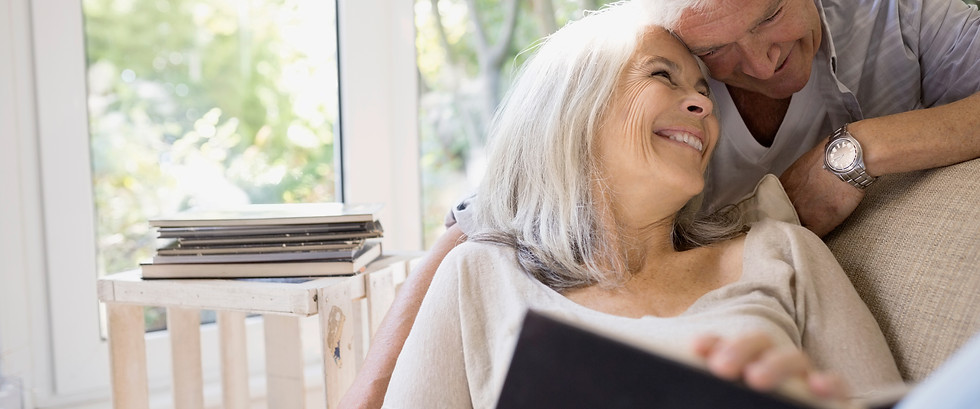
Frequently Asked Questions
1. ARE DENTAL SLEEP APPLIANCES EFFECTIVE?
The American Academy of Sleep Medicine and the Australian Sleep Association now consider dental sleep appliances a first-line treatment for snoring and mild to moderate sleep apnoea. They are also ideal for patients with severe sleep apnoea who cannot use CPAP or as an alternative when traveling and there is no access to power. Dental sleep appliances have been scientifically proven to be very effective with studies demonstrating – over 95% of people are satisfied with the level of improvement with their snoring. The appliance will improve the quality of your sleep but it may take several nights of more refreshing sleep for the tiredness to go. In some cases, the improvement in health and tiredness may occur more gradually over weeks or months.
2. WHAT ARE THE SUCCESS RATES OF ORAL APPLIANCES WHEN TREATING OSA?
80% of patients with mild to moderate OSA receive good to excellent results with an oral appliance.80% of snorers find an appliance stops or reduces noise level to an acceptable level. Most patients report they feel more alert and energetic within days of starting to wear an oral appliance. The appliances have been medically proven to improve your quality of life activities and reduce hypertension.
3. WHAT IS THE BEST TREATMENT FOR SNORING?
Most sleep physicians consider dental sleep appliances as the most effective, scientifically proven treatment for snoring - with the least side-effects. Studies demonstrate that dental sleep appliances are more effective than surgical treatments without the potential side-effects such as severe post-operative pain and regurgitation of food through the nose. The April 2006 edition of Choice magazine reviewed most of the "over the counter treatments" for snoring such as sprays, medications, and pillows. This review concluded that these treatments were unproven and mostly ineffective.. Buteyko is another treatment lacking any scientific evidence of effectiveness in the treatment of snoring and sleep apnoea. While weight loss, avoiding, caffeine, nicotine, and alcohol prior to sleep can be very helpful, dental sleep appliances remain the gold standard for immediate elimination of snoring.
4. ARE ALL DENTAL SLEEP APPLIANCES AS GOOD AS EACH OTHER?
Not at all. There are currently over 150 different dental sleep appliances throughout the world. Many of these appliances have not had studies to prove effectiveness, are not adjustable and are "one size fits all". Such appliances have been demonstrated to be far less effective and comfortable compared to the custom-made, adjustable appliances. While these appliances are generally less expensive, the accuracy of fit and poor durability are problematic and most people find them difficult to wear.The Snoring Clinic utilizes five different types of appliances. Each appliance used is custom-made and easily adjusted by the patient. These appliances all have undergone scientific studies demonstrating effectiveness and comfort. It is important to note that there is no one appliance which is ideal for each and every situation. The choice of the ideal appliance for each person depends on factors such as the size, position, and the number of teeth as well as the size and position of the jaws.
5. ARE DENTAL SLEEP APPLIANCES COMFORTABLE TO WEAR?
Although the mouth is a very sensitive area the vast majority of people adapt within a night or two and find the appliance surprisingly comfortable. This is because the appliances we make are tailor made and very thin. With happier partners and waking up feeling more refreshed, most people would much rather have it in during sleep than out.
6. HOW MUCH DOES A DENTAL SLEEP APPLIANCE COST?
The initial consultation includes a thorough assessment of your snoring or possible sleep apnoea. Dr. Delcanho will also assess the health of your jaw and mouth and your suitability for a dental sleep appliance. This visit is an opportunity to see several different appliances and discuss their pros and cons. The choice of appliance depends on several individual factors as assessed during the initial consultation. Call the clinic to discuss the appliance range and costings, including “state of the art” appliances.
7. PRIVATE HEALTH COVER?
Treatment with dental sleep appliances does attract private health insurance rebates, which varies between the funds and your level of cover. We encourage patients to check with their own fund as to the amount rebatable. The Snoring Clinic will supply a full list of the item numbers used for treatment.
8. WHAT IS INCLUDED IN THE TREATMENT FEE?
- A clinical visit in which the health of the teeth and mouth are assessed. (Please note that where radiographs / X Rays are required this is NOT included).
- An assessment is done for the possible presence of sleep apnoea.
- High level of support including any adjustment visits should they be required.
- A follow-up assessment visit approximately 2 weeks after fitting the appliance.
- A 2-year Guarantee that covers any faults, repairs or maintenance with the appliance.
- Letters to your GP or referring health professional.
9. HOW LONG DOES A DENTAL SLEEP APPLIANCE LAST?
If you don't clench or grind your teeth a dental sleep appliance can last four to five years and often many more. Even if you do clench and grind your teeth the appliance can still last for years and has the added benefit of protecting your teeth and dental work.
10. WHAT IF I AM MISSING TEETH OR HAVE A BRIDGE OR DENTURE?
You will need to have at least a total of six teeth to be able to utilize a dental sleep appliance. The tongue retaining device is an appliance specifically designed for people who are missing all their teeth. It is important to have a thorough assessment of the teeth, gums and jaws to ensure predictable, successful results with minimal problems long term.
11. I DON'T WANT TO USE THE CPAP MACHINE - IS THE DENTAL SLEEP APPLIANCE AN ALTERNATIVE?
While CPAP is regarded as a gold standard treatment for severe sleep apnoea, dental sleep appliances are now regarded by most sleep specialists as a viable alternative to CPAP for mild to moderate sleep apnoea. The experience of CPAP users who have made the change invariably state that dental sleep appliances are much more comfortable than CPAP. Even people with severe sleep apnoea might continue to use their CPAP at home and use the easily portable dental sleep appliances when traveling away or times where there is no access to a power source.
12. DO I HAVE TO WEAR THE DENTAL SLEEP APPLIANCE FOREVER?
No. There may be other methods which you can do for your self that can help overcome the problem. This is very individual and assessed and discussed in the first consultation. For many people weight loss, exercise or changing body position during sleep can go a long way to overcoming snoring and sleep apnoea. This can be difficult to achieve if you are sleepy and tired. The use of a dental appliance can result in a boost in energy levels through better quality of sleep, hence the impetus to make lifestyle changes.
13. ARE THERE ANY SIDE-EFFECTS?
The vast majority of people have little or no side effects. A small percentage of people have minor side-effects such as excessive saliva, jaw tenderness, pressure on teeth and bite changes. Most side effects are temporary and disappear after a day or two or with a simple adjustment.
14. HOW DOES THE DENTAL SLEEP APPLIANCE WORK?
Dental sleep appliances work by holding the lower jaw slightly forward during sleep thereby opening the airway at the back of the throat which is responsible for the snoring and obstruction. The tongue is attached to the lower jaw, and with the jaw held forward, the tongue is prevented from collapsing back
